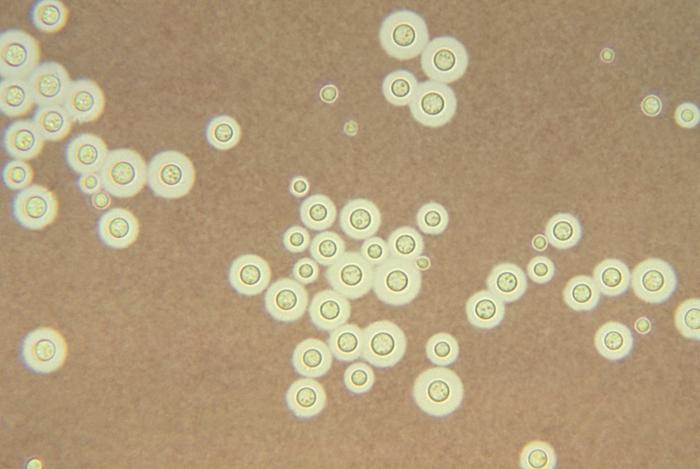The U.S. Food and Drug Administration (FDA) has granted Qualified Infectious Disease Product (QIDP) designation to VT-1129, a novel candidate for the treatment of cryptococcal meningitis, according to the Durham, NC based company, Viamet Pharmaceuticals, Inc.

Image/CDC
Created under the Generating Antibiotics Incentives Now (GAIN) Act of 2012, QIDP designation provides Viamet with significant incentives for the development of VT-1129, including the potential for priority review by the FDA, eligibility for fast-track status, and a five-year extension of marketing exclusivity under the Hatch-Waxman Act.
“The FDA’s decision to grant QIDP designation to VT-1129 supports our belief that VT-1129 has the potential to provide a marked impact in the treatment of cryptococcal meningitis, which is associated with significant mortality and morbidity globally. QIDP designation may expedite development of this promising therapy, accelerating the potential availability to patients afflicted with this life-threatening fungal infection of the brain,” commented Robert Schotzinger, M.D., Ph.D., and CEO of Viamet.
“Based on our successful progress to date, we expect to initiate the Phase 1 clinical program for VT-1129 in the fourth quarter of 2015.”
VT-1129 is a potent and highly selective inhibitor of fungal CYP51. VT-1129 blocks the production of ergosterol, an essential component of the fungal cell membrane, which is critical to fungal proliferation and survival. In preclinical models, oral VT-1129 has demonstrated very high potency against Cryptococcus species, achieves high concentrations within the central nervous system, and markedly improves survival in cryptococcal meningitis models
The company also announced that VT-1129 will be highlighted in two presentations at the 2015 American Society for Microbiology (ASM) Interscience Conference of Antimicrobial Agents and Chemotherapy (ICAAC) and International Society of Chemotherapy (ISC) International Congress of Chemotherapy and Infection (ICC). The conference will take place September 17-21, 2015 in San Diego, CA.
The presentations will illustrate that VT-1129 is a potent inhibitor of the CYP51 enzyme in Cryptococcus neoformans, the fungal organism responsible for cryptococcal meningitis. CYP51, a metalloenzyme essential for fungal proliferation and survival, is the target of several marketed antifungal therapies. In preclinical studies, VT-1129 exhibited robust activity against clinical Cryptococcus isolates, including isolates highly resistant to fluconazole, a widely prescribed antifungal agent.
At ICAAC/ICC 2015, preclinical data will be presented demonstrating that VT-1129 is highly selective for fungal CYP51 versus closely related human metalloenzymes, including CYP3A4, CYP2C9, CYP2C19, CYP17 and CYP19. Inhibition of human metalloenzymes is a common reason for toxicity with many marketed antifungal therapies.
Cryptococcal meningitis is a life-threatening fungal infection of the brain and the spinal cord. This infection occurs most often in immunocompromised patients, including those with HIV infection, transplant recipients and oncology patients. It is estimated that there are 3,400 hospitalizations associated with cryptococcal meningitis annually in the United States. Worldwide, approximately 1 million new cases of cryptococcal meningitis occur each year, resulting in 625,000 deaths.

